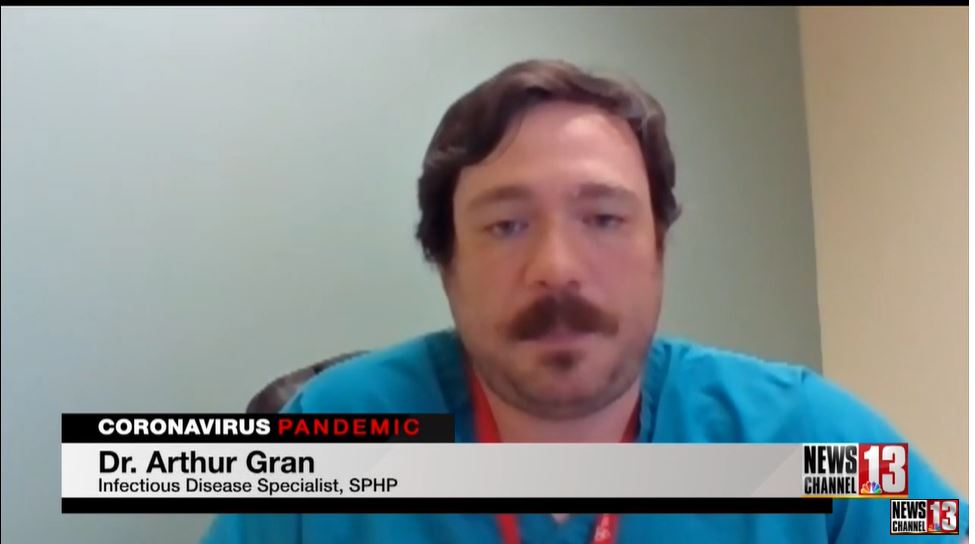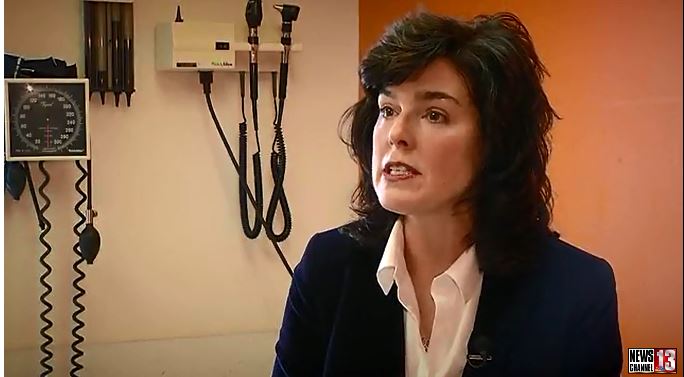
Arthur Gran, M.D., of Troy Infectious Disease, a practice of St. Peter’s Health Partners Medical Associates, was interviewed by WNYT for its story on the multi-system inflammatory syndrome affecting children in the late stages of recovery from COVID-19.
Dr. Gran discussed the difference between the Kawasaki-like illness and Coxsackie virus, a common childhood illness.
From the story:
Multi-system inflammatory syndrome is what Dr. Arthur Gran is talking about. It’s been diagnosed in about 150 children in the late stages of recovery from COVID-19.
The infectious disease specialist says while many symptoms overlap with traditional Kawasaki disease, this new syndrome is far more dangerous.
“Kawasaki disease is not usually associated with severe illness and many kids aren’t even hospitalized for it,” said Dr. Gran.
However, they are often hospitalized with this new syndrome.
“It can lead to circulatory collapse when your blood pressure drops low. It can lead to kidney failure. It can lead to neurologic chances, seizures, and strokes,” said Dr. Gran.
Again, three children have died from the multi-system inflammatory syndrome. However, traditional Kawasaki is rarely fatal.
The worry is down the road – as Kawasaki disease can affect the heart.
Symptoms of both include fever. Children may have lesions in the mouth, conjunctivitis, and a body rash – usually on the hands and feet.
However, the multi-system inflammatory syndrome only follows COVID-19.
Neither should be confused with another disease that triggers fever and rash but is far less worrisome – the Coxsackie virus.
“Every kid who’s exposed to other children is going to have at least one Coxsackie virus illness,” said Dr. Gran.
Dr. Gran explains Coxsackie virus is easily spread among young children because they touch everything and everyone.
“Coxsackie virus comes in a couple of different flavors. The most common that we see is hand, foot, and mouth disease in children,” he said. “The majority of cases are self-limited. They do not cause severe symptoms. They do not lead to hospitalization – and they usually go away within a few days.”
Click here to watch WNYT’s report.





